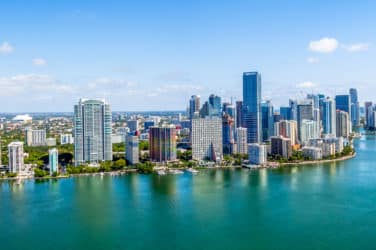- Net revenue up 16 per cent in Q4/2018, to €740 million
- Net profit (adjusted) up 19 per cent year-on-year in Q4/2018
- Net revenue up 13 per cent in full year 2018, to €2.8 billion
- Net profit (adjusted) up 17 per cent in full year 2018, to €1.0 billion
- Earnings per share (adjusted) of €5.42 for the full year 2018
- Proposed dividend increase by 10 per cent, to €2.70 per share
- For 2019, secular net revenue growth of at least 5 per cent, and adjusted net profit growth of around 10 per cent expected
- Confirmation of mid-term targets for adjusted net profit growth of an annual average of 10 to 15 per cent as part of the “Roadmap 2020” strategy
Deutsche Börse AG published its preliminary results for the fourth quarter and full-year 2018 today. In 2018, Deutsche Börse AG generated net revenue of €2,770.4 million, an increase of 13 per cent compared to the previous year (2017: €2,462.3 million). Structural net revenue growth was slightly stronger than expected, at 6 per cent. Net revenue growth resulting from cyclical tailwind also reached approximately 6 per cent, mainly driven by higher equity market volatility and rising interest rates in the US. Further net revenue growth of approximately 1 per cent resulted from additional revenue contribution by companies acquired in 2018. Adjusted operating costs rose by 5 per cent year-on-year, as planned, to €1,096.0 million (2017: €1,039.5 million). Operating costs were adjusted for exceptional items in the amount of approximately €244 million, which mostly stemmed from the structural performance improvement programme implemented as part of the “Roadmap 2020” strategy. Adjusted earnings before interest, tax, depreciation and amortisation (EBITDA) reached €1,678.6 million, an increase of 17 per cent compared to the previous year (2017: €1,431.1 million). Net profit for the period attributable to Deutsche Börse AG shareholders (net profit) increased by 17 per cent to €1,002.7 million (2017: €857.1 million). Basic earnings per share, adjusted for exceptional items, amounted to €5.42 (2017: €4.59).
The Executive Board proposes a 10 per cent dividend increase for the 2018 financial year, to €2.70 per share (2017: €2.45 per share). The dividend proposal is equivalent to a distribution ratio of 49 per cent of adjusted net profit, and thus within the range set by Deutsche Börse Group’s dividend policy. The dividend proposal still requires formal approval by the Supervisory Board of Deutsche Börse AG (which has already expressed its support), and by Deutsche Börse AG’s shareholders at the Annual General Meeting on 8 May 2019.
Following strong growth in 2018, Deutsche Börse Group’s expectations for the year 2019 are slightly more subdued, given the general economic slowdown, risen economic risk and political uncertainty. Still, the company expects secular growth opportunities in 2019 to yield net revenue growth of at least 5 per cent. Based on its efficient cost management, Deutsche Börse Group expects adjusted net profit to grow by around 10 per cent in 2019. Depending on the equity market volatility, net profit growth could show slightly higher or lower levels.
Gregor Pottmeyer, Chief Financial Officer of Deutsche Börse AG, said: “In 2018, we managed to secularly increase our net revenue by approximately 6 per cent, slightly ahead of our plan. In addition, cyclical net revenue increased significantly. In total, adjusted net profit grew by 17 per cent – clearly exceeding our mid-term targets. Through a double-digit dividend increase our shareholders will adequately participate in this development.”
Theodor Weimer, Chief Executive Officer of Deutsche Börse AG, said: “Deutsche Börse Group is looking back on a really good year. In 2018, we also made important strategic decisions. Given the economic environment, we are taking a slightly more subdued stand on our expectations for the current business year. Cyclical risks are increasing and political risks are difficult to predict. Still, we are confident that we will maintain our ability to grow by our own efforts. In addition, we will focus on value-enhancing external growth and the consistent application of new technologies. Hence, we confirm our “Roadmap 2020” mid-term targets.”
Preliminary results for Q4/2018
During the fourth quarter of 2018, net revenue rose by 16 per cent on the same quarter of the previous year, to €740.4 million (Q4/2017: €639.0 million). With the exception of Xetra (cash equities), all of the Group’s segments reported positive growth. Eurex (financial derivatives) reported particularly strong growth, which can be largely attributed to a higher level of volatility in the equity markets. EEX (commodities) and Clearstream (post-trading) also contributed significantly to net revenue growth. In the Clearstream segment, growth was driven by net interest income from the banking business, where the Group posted a significant increase to €60.0 million (Q4/2017: €37.1 million). This increase can essentially be attributed to higher interest rates in the US.
Operating costs amounted to €458.9 in 2018, and thus clearly exceeded the previous year’s level (Q4/2017: €323.3 million). Amongst other things, the increase in operating costs was driven by exceptional items – which reached €140.4 million during the fourth quarter of 2018 (Q4/2017: €21.7 million). These exceptional items mainly comprised costs for efficiency measures and litigations. Adjusted for these exceptional items, operating costs rose by 6 per cent to €318.5 million (Q4/2017: €301.6 million). The result from strategic equity investments of €–2.0 million was influenced by impairment losses during the fourth quarter (Q4/2017: €74.4 million). During the previous year’s fourth quarter, the disposal of shares in ICE US Holding Company L.P. generated a positive exceptional effect; on an adjusted basis, the previous year’s figure was €0.9 million.
Deutsche Börse Group’s EBITDA in the reporting period totalled €279.5 million (Q4/2017: €390.1 million). Excluding the exceptional items described above, the Group posted an EBITDA of €419.9 million, up 24 per cent compared to the previous year (Q4/2017: €338.3 million).
Depreciation, amortisation and impairment losses rose to €66.7 million during the fourth quarter (Q4/2017: €43.7 million) as a result of slightly increased depreciation and amortisation, as well as impairment losses on software in the Clearstream segment. Adjusted for exceptional items, the depreciation, amortisation and impairment losses amounted to €63.2 million (Q4/2017: €42.6 million). The Group’s financial result was €–28.4 million (Q4/2017: €–24.2 million). This was due to provisions being recognised for interest rates on possible tax back payments.
Accordingly, net profit totalled €140.0 million (Q4/2017: €213.6 million). Excluding the exceptional items described above, it was €230.5 million (Q4/2017: €194.0 million). Basic earnings per share amounted to €0.77 (Q4/2017: €1.15). Adjusted for exceptional items, basic earnings per share rose by 20 per cent, to €1.25 (Q4/2017: €1.04).
Source: Deutsche Börse






